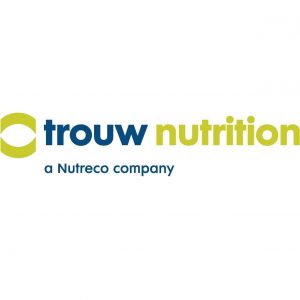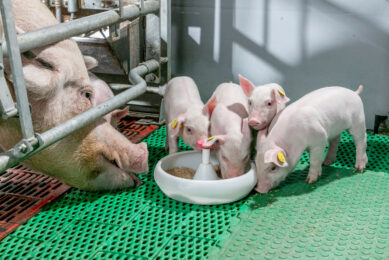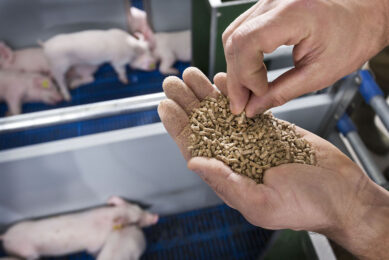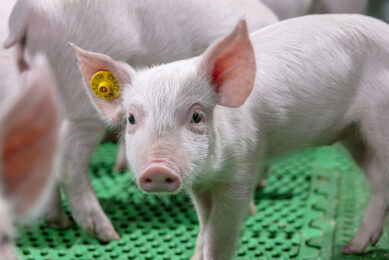Feeding to manage seasonal stress on pig farms
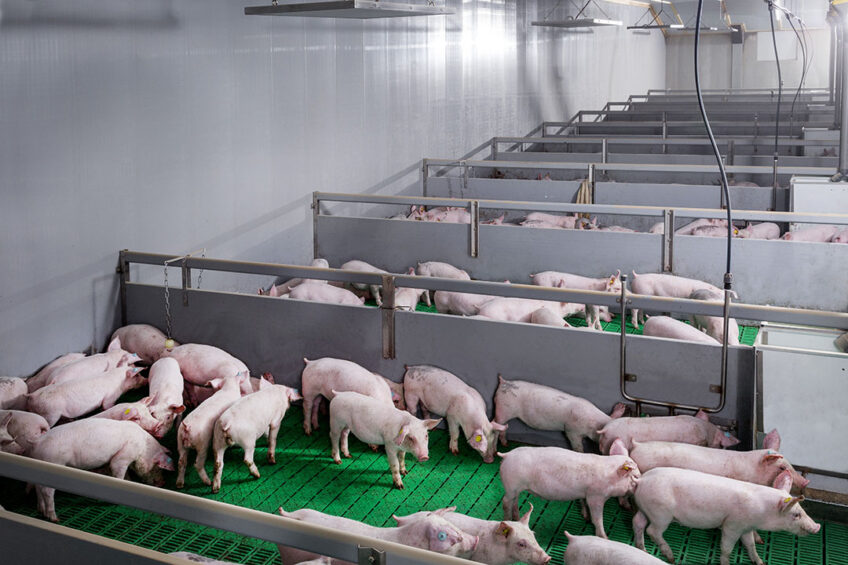
As seasons change, sudden temperature differences can be detrimental for young piglets. To prevent a strong effect of Streptococcus suis infection, for example, it is vital to make sure the animals are building up robustness and resilience as soon as possible. That is where quality nutrition can play a supportive role.
While every season brings production challenges, the transition to cooler weather can present added stress when it comes to maintaining piglet health, farm efficiency and production economics. As the temperature range swings from early morning cold through to heat in the late afternoon, farm managers can find it more difficult to maintain a comfortable temperature range for piglets. Such environmental stressors can combine with problems like enteric challenges, which may make animals more susceptible to harmful pathogens on the farm. Post-weaning diarrhoea or a Streptococcus suis outbreak can lead to higher mortality rates and can disrupt production efficiency and add expense for producers.
A strategy for supporting gut health
With those threats in mind, a production strategy designed to defend against environmental and disease threats can help support piglets and the business of pig production as the weather cools. The post-weaning period has always been a precarious time for piglets, and regulatory changes have restricted how some tools, like antibiotics, can be used to address production challenges. Although not a replacement for antibiotic use or therapeutic treatment in the face of a disease outbreak, science-based nutrition and solid farm management practices starting with the sow offer a strategic path to help defend young pigs experiencing multiple stressors, including weaning.
Early feed intake is essential for achieving good gut health, which promotes immune system function. Keeping young pigs eating is one of the primary ways to support a robust animal. Palatable feed with a composition of ingredients that support young pigs’ growth, development and gut maturation can encourage early and consistent feed intake.
Feed intake helps support animals
Sufficient feed intake helps support the piglets’ ability to withstand health challenges. From birth, and potentially increasing at weaning when piglet litters can be mixed, piglets are exposed to thousands of contaminants in their environment. While exposure to bacteria is essential to establishing the animals’ immune systems, some pathogenic bacteria can lead to a disease outbreak. The presence of a co-infection also may make piglets more susceptible to certain harmful bacteria, such as pathogenic strains of S. suis.
While animal feed on its own will not resolve disease challenges like S. suis, science-based nutrition can support an animal’s resilience and may be a tool for reducing some risk factors that lead to infection. For example, stressed piglets may be more susceptible to a common enteric threat like Salmonella or Escherichia coli. Under pressure, animals may slow or stop feed intake, which negatively effects gut health and immune system functioning. Not eating can be the first domino in a cascade of negative consequences for piglets, leading to poor growth, weight loss and disease susceptibility.
Shifting seasons pose challenges
Temperature swings can make it harder to establish and maintain farm husbandry practices that support high piglet quality. Large differences between daytime and nighttime temperatures can pose some management challenges. During cooler temperatures, there may be a need to heat the barn or adjust ventilation to avoid drafts and help piglets stay comfortable.
Health management is also essential when it comes to supporting pigs during a change in seasons. The immunity gap piglets face in the post-weaning period makes them more susceptible to a disease outbreak or co-infections. The exact mechanisms for an outbreak of pathogenic S. suis are not completely understood, as many sows carry non-pathogenic S. suis and some piglets are infected at birth but do not immediately develop the disease. But it does appear to occur more often as a co-infection, making it a more prevalent problem during autumn and spring. Although almost all sows are carriers of S. suis, only a relatively small number of these strains are pathogenic.
Calculating the cost of S. suis
It is worthwhile considering the cost of just one health risk sometimes seen during the transition to cooler weather. Beyond harming animal health, S. suis is a concern for pig producers because it can be an endemic problem that carries a high mortality rate and damaging price tag. Once a pathogenic version of the disease is pressuring a herd, mortality rates among infected animals can climb. A farm challenged with endemic S. suis may see a 3–5% morbidity rate and increased mortality. In instances of a severe outbreak, mortality rates may reach close to 20%. The mortality rate tends to be highest for pigs in the two to three weeks post-weaning.
Of course, there is also an economic cost to an outbreak. In an endemic situation where about 5% of animals are sick, damages (based on production costs in the Netherlands) have been calculated to be about € 1.1 per pig on the farm. Considering a mid-size farm with 13,500 pigs where 5% of animals become sick, the cost would be about € 15,000 a year.
Feed, farm and health management
Supplying feed tailored to prompt pig feed intake and gut health, practising good farm management and following good health management protocols offers the most holistic approach to supporting pigs from birth through the post-weaning period. Starting health management practices with the sow to ensure colostrum availability and a good start for piglets can support initial piglet robustness. Those initial practices should be followed by provision of a highly palatable piglet feed developed to provide the correct amino acids combination to support piglet development. This can help maintain feed intake and make piglets more resilient in the face of a disease outbreak.
A diet, like Milkiwean Vital Start, that is developed for piglets rather than based on the needs of older animals can help support piglet feed intake during stressful periods. The feed has been developed with an understanding of digestion kinetics to improve nutrient digestion and uptake, which may help gut development and immune system function.
Herd management steps to support piglets during a change in seasons include using extra care when mixing piglets together. Keeping piglets from sows infected with pathogenic strains of S. suis together helps reduce the potential for problematic strains of the disease spreading to non-infected piglets. Ensuring that feeders are properly spaced and that proper management practices are followed helps reduce the risk factors that can disrupt eating and potentially lead animals to be more susceptible to a disease challenge.
Combining good management practices with health management considerations and a palatable diet formulated for piglet needs can help nurture robust health and performance in every season. Unlike some piglet diets, the Milkiwean Vital Start programme has been created to specifically address the needs of piglets rather than those of older animals.
Although a holistic approach to piglet production cannot prevent all disease outbreaks, it can help reduce some risks while supporting piglet feed intake, growth and development.


